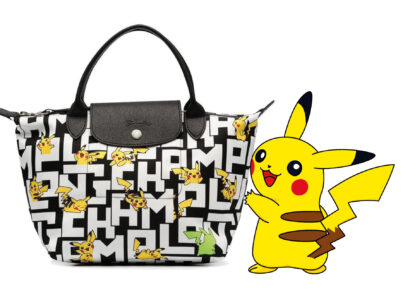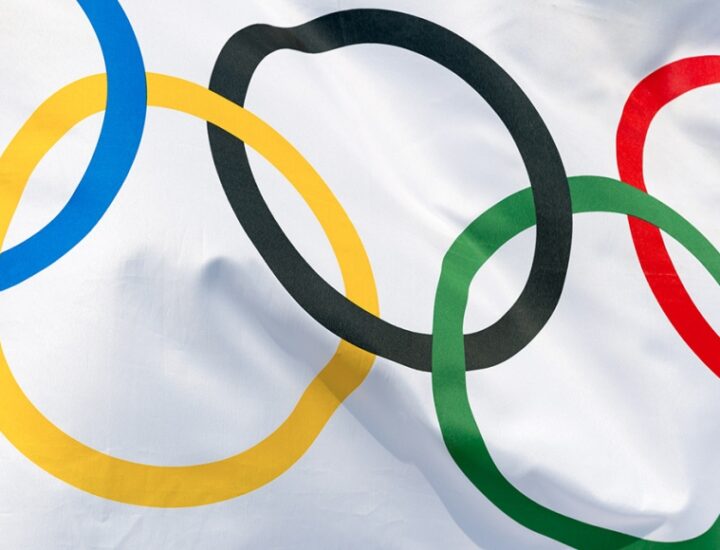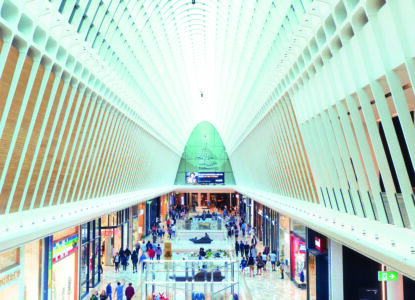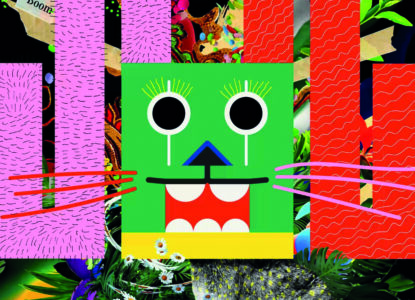
luxury conquers the no canal
Feared by luxury houses at the beginning, making most of them late adopters, the digital world is now a major and unavoidable axis of their ...
Our Expertise

IOC and Organising Committees build a new vision for the Games
Christophe Dubi (Executive Director of the Olympic Games) exchange with Henri Kieffer (founder of harpagon) on his career, his vision of the evolution and priorities for the Games.
What is your role as Director of the Games?
It’s a role of coordinating a very large system that concentrates a lot of expertise. My role is to make sure that this expertise works in a coordinated way towards one goal: the Olympic Games.
Before that, there is, of course, a bidding process to award the Games, for which I am also responsible.
Overall, therefore, I have to coordinate the whole system, which is based on the fundamental pillars of the Olympic family: the International Federations that organize their sports at the Games, the National Olympic Committees that manage their respective delegations, and of course the athletes who compete and perform.
Around this system, there is the Organizing Committee, which is responsible for organizing the Olympic Games, drawing on all the necessary expertise: from finance to security, including the creative fields, whether it be visual arts or the opening ceremony show.
My role is to ensure we have a project over a period of time, which may be 11 years in the case of Los Angeles 2028, but until recently was 7 years, and that things are done sequentially so that we can deliver Games that meet all the objectives.
It is also important to distinguish my role within the IOC management from that of all the elected officials: the President and the IOC members who represent the institution in their respective countries. We have a system of commissions: one of them, the Coordination Commission, is responsible for supervising the organization of the Olympic Games. It can be chaired by various personalities.
I am thinking, for example, of Nawal El Moutawakel, a wonderful Olympian and Moroccan minister, or, for the Tokyo Games, of Mr John Coates, one of the IOC vice-presidents. I am also responsible for assisting and running these coordination commissions.
For me, you are a child of the Games and the IOC. Tell us a bit more about you !
That’s right! As far back as I can remember, when I went home, there was a big picture of the 1972 Sapporo Games at the entrance of our home with all the delegations gathered in the middle of the speed ring.
My dad was part of the Swiss delegation as a hockey player. These are incredible and still vivid memories.
Then, after having two or three small jobs when I left university, I joined the IOC as a trainee in 1996 and gradually worked my way up. What’s very interesting about the IOC is that you get to work in several different areas. This has allowed me to end up in my current position, which is incredibly interesting for me because the Games are part of the collective unconscious: everyone has an opinion on the Games, and has the right to have one because the Games are part of the common universal heritage.
On the other hand, to organize the Olympic Games, you have to bring together all the genius available at a given time and place on the globe. It’s exciting, because one day you go from a purely political problem to a media controversy, from a cyber security risk to a financial issue. And all of this is done at the pace of great sporting achievements. It’s really exciting.
There have been bids in recent years that have been turned down, I remember Boston, Germany and even the Winter Olympics in Switzerland. What do you think this reflects on the way people look at the Games and more generally on the Games in our societies?
I think it reflects a fear, a loss of confidence or maybe a lack of credibility of institutions, whether it is political institutions, big companies or, as is the case for us, a big sports institution.
I think that today’s citizens think very individualistically about these social projects: « What will it do for me?».
Secondly, this loss of confidence can result from a certain number of scandals, whether financial, linked to doping or various abuses.
From this came in 2014 the Olympic Agenda 2020 project, the roadmap for the future of the Olympic movement, which brought about the necessary reforms for change.
The question was: what needs to be done to regain this trust?
For the Future Games, there is a plethora of interested parties, and this is unique.
I’ve just had a few days of consultations: countries like Qatar, Indonesia, Germany and Australia have indicated their interest in the 2032 Olympics or further afield. This is very unique and new.
So why the hype?
These countries have realized that, with the Olympic Agenda, we have given ourselves the means to position the Games as a tool at the service of a common vision for a city, a region or even a country.
The first important point is that we are now explaining to potential candidates that they do not have to change anything at home to host the Games, and that we will adapt to local contexts.
This constitutes a total paradigm shift. We took over and reviewed all the specifications: the host city contract, the financial guarantees, the technical requirements, and we made the whole thing more flexible with a clear message: with a common objective, the means are in the hands of the selected candidates. A great deal of creativity emerged from then on.
The second key point is that we have indicated that we do not want to see any more new buildings if they are not necessary and useful to the communities after the Games.
As a result, new buildings are no longer necessary. If the infrastructure is not available in the host city, it can be moved further afield, even abroad.
This is a clear advantage, as cost overruns at the Games are always linked to infrastructure investments by public authorities.
The next point is that we want to take effective action on both climate and social issues.
Therefore, only things that are of interest to the community in the long term will be produced.
This explains, for example, the election of the Milano-Cortina project for the 2026 Winter Olympics, which is based exclusively on existing infrastructures, without necessarily seeking compactness. The project is structured around four major geographical clusters that are « ready to use ».
This is very encouraging for the future.
Finally, to regain credibility and confidence in our institution, we need to open up more to civil society. It is not just the IOC, the staff and the Olympic family that matter, it is the ideas of those who follow the Games, and the thousands of ideas they propose.
We have opened dialogue with non-governmental organizations, including those that have a critical view of the Games. This is a cultural revolution, a new way of thinking: we dialogue, we listen to each other, we can agree on one subject and agree that we disagree on another.
How do you see these huge changes and what are the challenges?
First of all, the purpose of the Games remains the same: the emotion provided by the athletes’ sporting performance, which remains central, despite the technical developments in sport and its rules, or the increasingly fascinating experience of television viewers thanks to the new broadcasting technologies available.
To lead this transition and these changes, the human factor is of course fundamental and exciting.
How to convince people on a large scale in favour of a totally different corporate culture?
We could try to mobilize through fear, pointing out the risks to holding the Games, for example, with the few bids rejected by their populations.
Instead, we have chosen to drive change through new ideas and positive motivations by mobilizing all parties around the values of partnership, rather than fear; by finding common solutions through collaboration rather than following strict rules as a franchisor would with a franchisee.
Partners are working on the Olympic project with the organizing committee. The idea is to be flexible and to look for common solutions with these partners, rather than to control. We all have the same goal: successful and inspiring Games.
This approach requires daily energy as it leads to a loss of reference points for the teams, but it is useful and necessary to make the rules more flexible, to look for solutions that work, and to operate in a much more engaging way.
What changes have you noticed in your team on a daily basis?
These changes brought much more maturity and creativity to the operation: the teams realized that they were able to go far beyond simply revising the rules from one Olympiad to the next.

Imaging a solution together, daring and accepting the difficulty of a new and delicate situation allowed them to release a lot of energy, creativity and confidence internally thanks to the flexibility of the rules. This creative dynamic resulted in a boost in productivity.
For example, in the context of the Paris 2024 Games, we had some ambitious and exciting ideas: the marathon will be accessible to all runners inspired by the Olympic values. Organizing a popular marathon on the day of the Games might seem unthinkable, but it is now a reality. Another bold proposal was to organize the opening ceremony partly outdoor: this way we show that the Games do not only belong to those who have a ticket in the stadium, but to all Parisians and all French people.
It’s more complicated, of course, but just imagine: we invite 2 million people, Parisians and visitors, to the opening ceremony of the Games, it’s extraordinary!
I imagine that you have the help of consultants. What do you think are the characteristics of a good consultant?
A good consultant can produce improvements at the margin in areas where operational teams do not have sufficient insight.
An inspiring consultant is the one we want to engage with, because he or she offers a value proposition, either in terms of methodological approach or a specific expertise.
A good consultant must also be creative in relation to our field of action and think outside the box.
I enjoy looking back at their contributions at the end of an assignment and concluding that the consultants have made a real difference.
The media and the Games: it’s a bit of a love/hate relationship, isn’t it ?
On the one hand, the media need the Games of course.
Commercial rights, both television and digital, are very important for the IOC and the media involved, which have a mutual economic interest.
The tremendous appeal of the Games is confirmed every four years on screen. The Olympics dominate the international media landscape, even more than football or other events.
But there is also the more political news aspect.
Everything that revolves around the Olympic Games, the Olympic Movement, the organization or the functioning of the institution is subject to some criticism.
For example, there was a controversy in Japan about holding the Games in the midst of a pandemic and another about a statement by the president of the organizing committee about the role of women in Japan.
The statements made by personalities from the Olympic world regularly make the headlines, proving that the Games are of interest to everyone.
We are approached daily by the media. We cannot respond to all of them, but we act with the utmost transparency.
Most operational documents are public because we have nothing to hide. With the media, it is the same thing. Hence the relationship of proximity and trust that we want to maintain and develop with them.

Feared by luxury houses at the beginning, making most of them late adopters, the digital world is now a major and unavoidable axis of their ...

Scanning a barcode to know the composition of a product, reading other customers before choosing a restaurant, or comparing airfare prices, ...

From Christie’s sale of a piece of digital art for $69 million, to Jack Dorsey’s (co-founder of the Twitter platform) first twee...